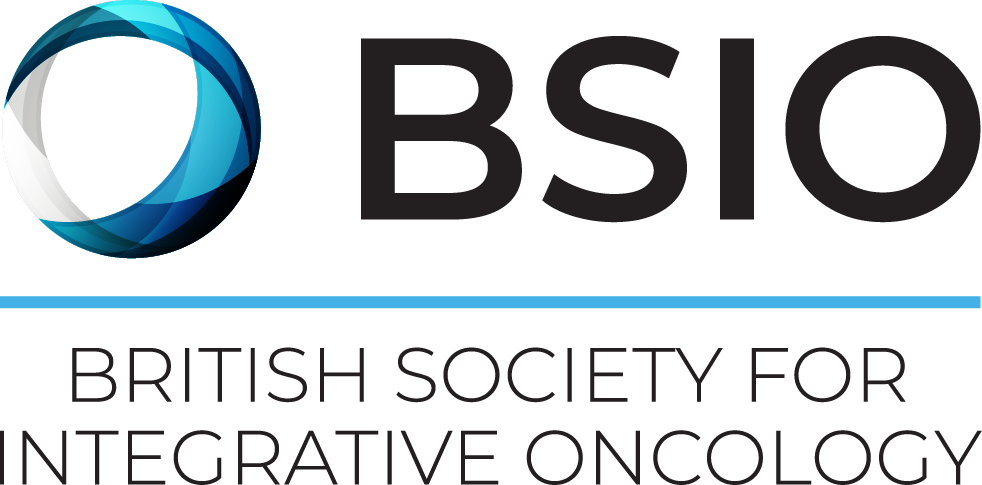Integrative Oncology matters - the clinician’s role in empowering patients to explore
As an oncologist, it is very hopeful to see a year-on-year improvement in overall survival from cancer in UK and globally. There are multiple good reasons for such progress, including the expansion of screening programs at a global scale, the emergence of new drug therapeutics which are more targeted than traditional chemotherapies and the development of new radiotherapeutic techniques.
Whilst cancer survival continues to improve, people live longer with the consequences of cancer treatment which can have an adverse impact in their personal and professional lives.
A cancer diagnosis and treatment is unique for every patient, but the journey and emotions are very similar for everyone – fear, loss of control and self-efficacy, uncertainty about the future.
Cancer diagnosis and treatment is a life-changing experience for patients and their families. For some, cancer has represented a journey of self-awareness and self-discovery, an opportunity to transform lifestyles as a protective and preventive approach and as a means of regaining control. For others, it has resulted in radical life changes such as adopting a plant-based diet, taking up a new sport or hobby like art and music, changing long-standing bad habits such as smoking and excess alcohol consumption or even leaving a stressful job to pursue a different career path.
My experience with cancer patients who have transformed their lives during and after cancer treatment through lifestyle changes, is a very powerful one. People report remarkable improvements in their physical and mental wellbeing, enhanced resilience to life’s setbacks and creation of new and improved relationships with people. An important key enabling factor for those people to stay motivated and strong during this period of transformation is their relationship with their Oncologist and the wider cancer team looking after them.
Integrative Oncology as a philosophy
Integrative Oncology (IO) is a philosophy and practice of medicine that addresses the whole person and not just symptoms of disease. It supplements traditional cancer therapies and may work synergistically to improve patient outcomes from treatment.
It is true that between 40% and 90% of cancer patients use some form of complementary and alternative medicine (CAM) therapies during their cancer journey, but only few will tell their oncologist or cancer nurse specialist. Patients do not often reveal to their clinics team if they have adopted a new dietary regime or whether they take supplements and other therapies because those aspects of care are not considered mainstream practice in the NHS yet. Cancer sufferers are more likely to seek CAM therapeutic interventions outside NHS clinics and they are often met with resistance from their clinical team. An open and compassionate conversation between clinicians and patients around all aspects of Integrative Oncology would empower patients to have control over their care and could bring back faith, hope and their sense of self-efficacy that gets smashed at diagnosis.
There is large variation in the level of awareness and access to Integrative Oncology practices, with only 40% of all Integrative Oncology programmes globally providing both complementary and conventional therapies in same location. Some people with cancer are brave enough to research about and explore IO whilst a vast majority have no access to such resources. As the science and clinical evidence of benefit of IO has grown, we should all incorporate such conversations with our patients in clinic, to help people navigate the various therapy choices. A good mainstream Integrative Oncology practice should see cancer specialists helping people living with and beyond cancer make choices about the right intervention for them to improve their health and wellbeing, working collaboratively with external IO practitioners if needed.
Integrative Oncology in practice
The role of the Oncologist and other healthcare professionals treating cancer patients is to empower more patients making that transition to a better and healthier life through Integrative Oncology. Looking into the future of clinical oncology practice in UK, we need to align to other developed countries in the world who have incorporated IO programmes and practices within Oncology clinics.
Some essential elements to an Integrative Oncology program include the following:
· Clinical guidelines supporting evidence-based Integrative Oncology.
· A wide range of complementary therapy options including physical activity, nutrition, mind-body therapies.
· Health coaching and group support
· Clinical information, training and education
· Multi-disciplinary practice, a partnership of trust between clinicians, patients and their families.
· Embedding research and patient reported outcome and experience measures.
Challenges and opportunities
There are 30 million cancer survivors globally with complex and often unmet physical and psychosocial needs. Patient initiated follow up schemes have been great in minimising unnecessary hospital contacts and at the same time maximising peoples’ independence.
There are some people though who feel more anxious about having less contact with their clinical team during follow up. The lack of funding for supportive and complementary care leaves such patients on their own to cope with their new normal. Typical long-term complications of cancer and cancer treatment where IO can have a profound positive effect include fatigue, depression, sexual issues, lymphoedema, neuropathy, arthralgia, pelvic syndrome, menopausal effects and osteoporosis. These effects can be life-changing for some patients.
An Integrative Oncology approach in clinic could support such patients to live independent lives and gain the confidence and control to cope with life. Cancer diagnosis is often the opportunity for lifestyle changes and health promotion and supporting self-management can improve people’s quality of life, and clinical outcomes.
We have a unique opportunity as clinicians working in integrated care systems, to shape the future model of care for cancer patients, incorporating Integrative Oncology at diagnosis through to treatment and survivorship.
By doing so, we will improve the lives of all cancer patients and that of their families regardless of where people live or their social circumstances.
Author
Dr Penny Kechagioglou, Consultant Clinical Oncologist and Group Clinical Director for Surgery and Emergency Medicine at the University Hospitals Coventry and Warwickshire, Co-Chair of the British Society for Integrative Oncology (BSIO)

